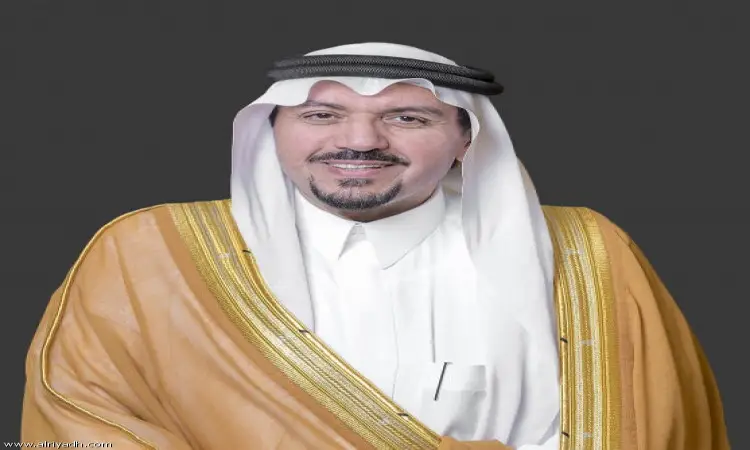Under the patronage of His Royal Highness Prince Dr. Faisal bin Mishaal bin Saud, Governor of Qassim Region, the University, represented by the Intellectual Awareness Unit, is preparing to organize the Awakening Concept and Problems Conference tomorrow, Tuesday and Wednesday, 24-25 Rajab 1439H, with the participation of a large number of experts and specialized academics, in the presence of distinguished sheikhs who are members of the Council of Senior Scholars.
His Excellency Prof. Dr. Abdulrahman bin Hamad Al-Dawood, President of the University and General Supervisor of the conference, explained that the conference comes within the university's continuous activities in establishing moderation and spreading moderation, whether at the level of extracurricular activities such as holding events, conferences, exhibitions and meetings or at the level of curricular activities related to developing curricula and the educational process as a whole, pointing out that this has resulted, thank God, in reformulating Islamic culture courses to suit the changes of the times and adding some sharia courses in the College of Sharia and Islamic Studies that deconstruct the speech of extremism and face its premises and literature in a scientific manner.
Al-Dawood said: "This conference organized by the university is very important because it discusses a complex issue and a term that is present in the history of Saudi society, and at the same time carries within it incorrect contents and imported ideas, which is why it was the focus of His Highness the Crown Prince in multiple meetings, and based on our awareness, intellectual and national responsibility in this tender university, and in fulfillment of our scientific and research duty, this conference was held to analyze this term and subject it to further analysis and correction through a group of thinkers and researchers."
He added: "What concerns us at this conference is the imported movement aspect that crossed our borders and led some of our youth to create a state of conflict and emptiness between them and their country, and this was manifested at the time in the continuous protest against many decisions, reforms, and political measures of the ruler, while the true religiosity based on moderation, spreading goodness, teaching science, memorizing the Qur'an, and caring for the rites of religion, there is no doubt that we as Muslims must promote these correct manifestations and spread them in society, and stand with our state as a united front and an impenetrable wall against any attempt to distort it or limit it from the inside and the outside. No one can argue with our leaders and our country in this regard, praise be to God, and I remember in this regard the immortal words of our King, the Custodian of the Two Holy Mosques, when he said, "There is no place among us for an extremist who sees moderation as decadence and exploits our tolerant faith to achieve his goals, nor for a degenerate who sees our war on extremism as a means of spreading decadence."
Al-Dawood continued: "We have learned from our wise leadership represented by the Custodian of the Two Holy Mosques and His Royal Highness the Crown Prince - may Allah protect them - to work on two complementary tracks: "We have learned from our wise leadership represented by the Custodian of the Two Holy Mosques and His Highness the Crown Prince - may Allah protect them - to work on two complementary tracks: Protecting the generation from corrupt perceptions and wrong ideas that lead them to destabilize security, destroy souls and violate sanctities, as this is our mission and duty."
For his part, Dr. Khalid Abu Al-Khail, Dean of the College of Shari'ah and Islamic Studies and Supervisor of the Intellectual Awareness Unit, explained that the conference will not talk about the Awakening as a practice and behavior, but will talk about it as a thought and perception of religion, saying: "If we say that the Awakening brought something new that was not present in the religion before, it means that it is an act of heresy from the religion, and if we say that it strengthened some practices and behaviors that were present in society, such as charity and volunteer work, this is true, but what interests us in the Awakening is its perception of religion or the form of religiosity it presented to society
Abu al-Khail added that the Awakening has unfortunately created a state of conflict and a conspiracy mentality in the consciousness of the youth, pointing out that there is a state of suspicion and hostility towards the state and the scholars of the official institution due to some of their imported literature towards the ruler and the ruler, indicating that this conference will cut off the way for extremist employments that criticize religious rituals under the pretext of criticizing the Awakening
Abu Al-Khail believes that one of the biggest issues in the Sahwa discourse is the promotion of the idea of the caliphate at the expense of the Qatari state, stressing that this is evident in many of their literature, which is spread in songs and lectures, creating a generation of young people who have an issue with belonging, in addition to making "religiosity" a different cultural pattern, so that the correct position for some young people became the opposite position to the state, even purely administrative decisions made by the state were converted in the Sahwa discourse into a state of conspiracy and denial.
The conference will discuss more than 20 research papers over the course of two days dealing with several themes and topics, the most important of which are: The term Awakening: "Significance and concept", the formation of the Awakening "Origin, development, and extension", in addition to the relations of the Awakening: "Currents - Organizations - State", and the problems of the Awakening: "Currents - Organizations - State", and the issues of the Awakening: "Imamah, Caliphate, Religiosity, Apprehension, Extremism, Affiliation, Partisanship".


